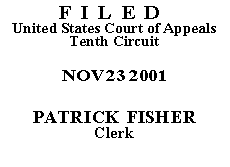

| DAVID BRUCE HAWKINS,
Petitioner-Appellant, v. STEVE HARGETT, Respondent-Appellee. |
|
David Hawkins, an Oklahoma state prisoner, seeks a certificate of appealability to appeal the district court's denial of his 28 U.S.C. § 2254 petition for writ of habeas corpus. Because we conclude Hawkins has failed to make "a substantial showing of the denial of a constitutional right," 28 U.S.C. § 2253 (c)(2), we deny his request for a certificate of appealability and dismiss the appeal.
Hawkins was convicted by an Oklahoma state court jury of second degree burglary, shooting with intent to kill, two counts of kidnapping, unauthorized use of a motor vehicle, and four counts of first degree rape and was sentenced to life imprisonment plus fifty-two years. His convictions were affirmed on direct appeal, and his petition for state post-conviction relief was denied initially and on appeal.
Hawkins then brought this § 2254 petition in federal district court, asserting fourteen claims for relief. The district court found the claims to have been either procedurally defaulted or to have failed to meet the strict standard for relief under § 2254(d). We agree.
The district court agreed with the recommendation of the magistrate judge that seven of Hawkins' claims and part of another were procedurally barred. Hawkins does not contest that determination, but, instead, attempts to show either "cause and prejudice" to excuse the default or, alternatively, that failure to consider his claims will result in a fundamental miscarriage of justice. Hawkins has failed to make either showing.
As cause for his procedural defaults, Hawkins states that he is pro se and unlearned in the law. That status, however, is insufficient to establish cause for procedural default. Rodriguez v. Maynard, 948 F.2d 684, 688 (10th Cir. 1991). In order to excuse a failure to raise defaulted claims, a habeas petitioner must identify "some external impediment that prevents the petitioner or counsel from constructing or raising the claim." Id. at 687 (quotation omitted). Hawkins has identified no such external impediment.
Nor has Hawkins demonstrated that a fundamental miscarriage of justice
will occur should the federal courts refuse to address his claims. A fundamental
miscarriage of justice occurs in only narrow cases and in extraordinary instances
where a constitutional violation probably caused the conviction of an innocent
person. Murray v. Carrier, 477 U.S. 478, 496 (1986). For that kind of claim to
be credible, Hawkins must support his allegations of innocence with "new reliable
evidence whether it be exculpatory scientific evidence, trustworthy eyewitness
accounts, or critical physical evidence that was not presented at trial." Schlup v.
Delo, 513 U.S. 298, 324 (1995).
Instead of making this showing, Hawkins simply reiterates the evidence
presented at trial and gives it his personal interpretation. He has presented no
new evidence to support his interpretation and has thus failed to come within the
fundamental miscarriage exception.
For the balance of the claims not procedurally defaulted, the district court found that none of the state court judgments addressing the claims "resulted in a decision that was contrary to, or involved an unreasonable application of, clearly established Federal law, as determined by the Supreme Court of the United States; or [] resulted in a decision that was based on an unreasonable determination of the facts in light of the evidence presented in the State court proceeding." 28 U.S.C. § 2254(d)(1) and (2). For substantially the same reasons stated by the magistrate judge and the district court, we agree with this conclusion. Hawkins has thus failed to make the "substantial showing of the denial of a constitutional right" necessary for a certificate of appealability to issue. See 28 U.S.C. § 2253(c)(2).
We therefore DENY the application for a certificate of appealability, and DISMISS the appeal.
Entered for the Court
Circuit Judge
*. This order and judgment is not binding precedent, except under the doctrines of law of the case, res judicata, and collateral estoppel. The court generally disfavors the citation of orders and judgments; nevertheless, an order and judgment may be cited under the terms and conditions of 10th Cir. R. 36.3.